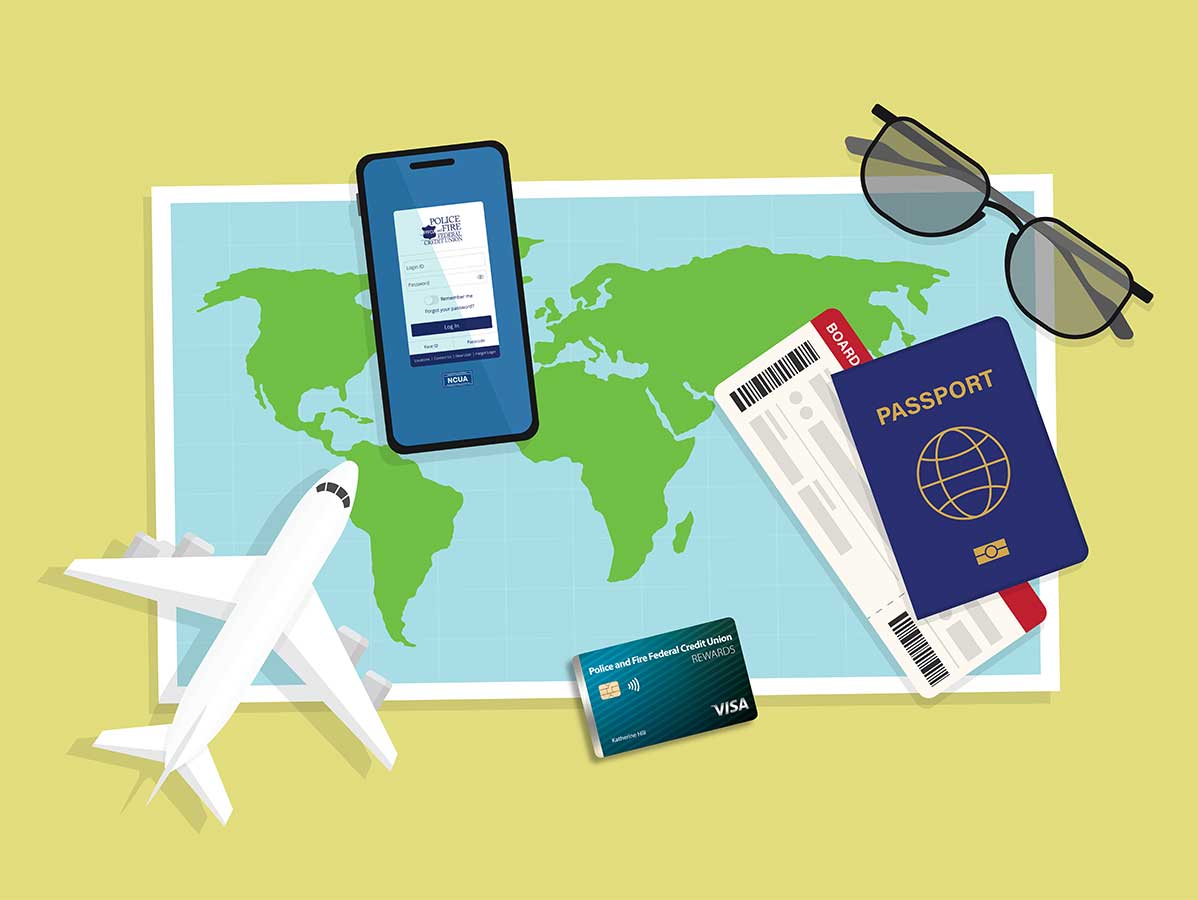 Fraud
FraudAugust 29, 2023
Tips for Fraud-Free Travel
Tips for Fraud-Free Travel
Vacation season is the busy season for scammers. They love when people are carrying extra cash while distracted by new surroundings. Stay alert with these tips for fraud-free travel.
How helpful is too helpful
When someone that you’ve never met reaches out with a helping hand, it can bring a warm, welcomed feeling. Unfortunately, fraudsters will exploit that feeling. In one common scam, they’ll offer to “show you how to avoid ATM fees.” What they really want is to get close enough to watch you input your PIN and reach your ATM card.
Fraudsters also watch for couples and families who’d appreciate a group photo; it’s their chance to run off with your camera or smartphone! To get your group photo, be proactive – find another tourist group, and ask them to snap your pic; it’s a favor you can immediately return.
Watch your pockets.
Another scam requires two thieves working together. The first spills something on you, and the second offers to help wipe it off. They’ll busily flutter their handkerchief or napkin and make eye contact – anything to draw your eyes away from their other hand while it picks your pocket.
Whether they work in pairs or alone, thieves gravitate toward exterior pockets, the fuller the better. Consider traveling with a cross-body bag or money belt. Or pack clothing with interior pockets that zipper or button. When you keep your valuables close, you’re more aware of their presence, and they’re more difficult for pickpockets to access.
Confirm Wi-Fi connections.
When away from home, hotels and cafes are common destinations for free Wi-Fi. Before you connect, confirm with a staff member that you’re choosing the right Wi-Fi option. Hackers set up decoy networks to steal confidential data.
Watch out for these three red flags.
- Nearly identical network names (e.g. “CafeA_wifi” and “Cafe-A-wifi”). One likely belongs to a hacker trying to cause confusion.
- Unsecured networks. No password requirement or opt-in page? Then you’re not on a secured network.
- Required downloads should be declined. An establishment’s real network will not ask you to download anything.
Make the most of anti-fraud tools.
A secured network from a name-brand hotel is not a guarantee of safety. As a general rule, avoid accessing your financial accounts or making online purchases when you’re on any public network.
With PFFCU’s Online/Mobile Banking, you can plan ahead to limit your logins. You can set Account Alerts to receive a text, call, or email for your choice of transactions and activities. For instance, you can get notified of any debit transaction over $500. Before you travel, consider adding additional Alerts and making your existing Alerts more inclusive (e.g. debits over $50). Alerts are easily changed in the Settings menu.
Be prepared just in case.
What if you get an Account Alert showing an unauthorized purchase? Or your wallet goes missing? That’s when you’ll want to log in to Online/Mobile Banking quickly to take control.
In the Card Management section, you can lock your PFFCU credit and/or debit cards with just a few taps. Even if you think you left your card in your hotel room, take the precaution of locking it; once you have your card in hand, you can unlock it just as easily. If you have reason to believe that it’s really gone, report the card(s) lost or stolen.
Work with your fraud-fighting partner.
As a fast, easy precaution, log in to Online/Mobile Banking’s Card Management section to set Travel Notifications before you go away. The best way to protect your accounts is by working together.

